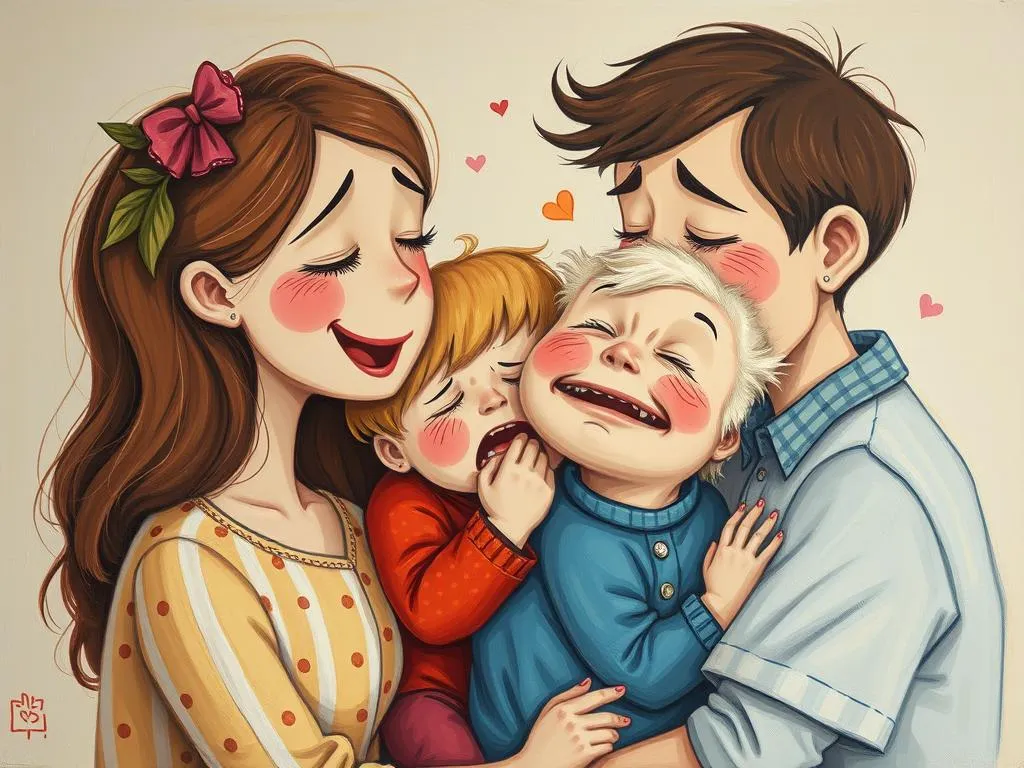
Dreams often serve as a fascinating window into our subconscious, reflecting our emotions, relationships, and unresolved conflicts. Among the myriad themes that can surface in our dreams, seeing family friends crying can be particularly poignant. This dream scenario stirs intrigue, prompting questions about its meaning, its connection to our waking life, and the emotions it evokes. Understanding such dreams can provide valuable insights into our emotional state, relationships, and even the challenges we face in our daily lives.
Symbolism and Meaning
When we encounter the image of family friends crying in our dreams, several symbols and emotions can be at play. On one level, crying is a universal expression of grief, sorrow, or even relief. It may indicate that something is troubling you or that you are processing feelings related to loss or change. When this crying involves family friends, it can take on additional layers of meaning.
Family often represents our roots, our upbringing, and the values instilled in us from a young age. Friends, on the other hand, symbolize companionship, support, and social connections. When these two elements intersect in a dream, it can reflect the intricate web of relationships in your life. You may feel a sense of responsibility or empathy towards those close to you. Their crying could signify your concern for their well-being or an awareness of their struggles.
From another perspective, the act of crying in a dream may not necessarily be about the individuals involved. Instead, it could represent your own emotional release. Seeing loved ones in distress might mirror your internal feelings of sadness or anxiety that you have yet to acknowledge. This can be a call to examine your emotional landscape and confront any underlying issues that may need addressing.
In some cases, the dream may signal a fear of loss—whether it be the fear of losing a friendship, a loved one, or the essence of a relationship that is changing. The dream might serve as a prompt to assess the state of your relationships and consider whether they are nurturing or draining.
Key Scenarios and Variations
The context in which you see family friends crying can significantly influence the interpretation of the dream. For instance, if you witness a family friend crying in a familiar setting, such as a family gathering or a shared home, it might indicate that you need to pay closer attention to the dynamics within your social circles. It could suggest that there are unresolved tensions or unspoken emotions that require your attention.
On the other hand, if you encounter crying family friends in an unfamiliar or chaotic environment, it may reflect feelings of confusion or anxiety about your social life. This may indicate that you feel disconnected or overwhelmed by the expectations placed upon you by friends or family. This scenario can also lend itself to themes of betrayal or miscommunication, which may require deeper reflection on your relationships.
Another variation involves you being the one comforting the crying friends. This scenario may highlight your role as a caregiver or a mediator. It could suggest that you possess a strong emotional intelligence and a desire to support those around you. However, it might also indicate that you are neglecting your own emotional needs in favor of others, prompting a need for self-care.
If the crying is accompanied by feelings of joy or relief, such as reconciling after a long-standing disagreement, it reflects positive transformations in your relationships. This indicates a healing process, suggesting that you and your family friends may be moving towards a deeper understanding or renewed connection.
Ultimately, the specific emotions you experience during the dream—be it sadness, empathy, or relief—are crucial indicators. They can inform your waking life and help you understand the dynamics at play within your relationships.
Real-Life Connections and Takeaways
Reflecting on dreams about family friends crying can reveal important truths about your emotional health and interpersonal dynamics. It invites you to consider how your relationships are evolving and whether they align with your values and needs.
Start by examining your current relationships. Are there friends or family members who might be struggling? Your dream could be a subconscious nudge to reach out, offer support, or even check in with them. This could foster deeper connections and reinforce the bonds that matter most.
Additionally, engage in self-reflection regarding your emotional state. Are you feeling overwhelmed, neglected, or burdened by the needs of others? The dream may serve as a reminder to prioritize your well-being. Taking time to process your own emotions can help you navigate relationships more effectively.
Consider journaling about your feelings. Writing down your thoughts can provide clarity and serve as a therapeutic outlet for your emotions. Ask yourself whether there are unresolved issues in your life that need addressing or if there are relationships that require reevaluation.
Furthermore, think about the potential for communication. If you perceive tension or unspoken feelings in your relationships, consider initiating conversations. Expressing your feelings and inviting open dialogue can lead to healing and understanding, reducing the likelihood of misunderstandings.
Dreams are powerful tools for self-discovery. They often reflect our deepest concerns and desires. By paying attention to the emotions evoked by dreams of family friends crying, you can gain valuable insights into your relationships and emotional health.
In conclusion, dreams of family friends crying can be rich with meaning, offering a glimpse into our emotional landscape and the dynamics of our relationships. By exploring the symbols, scenarios, and real-life connections associated with this dream, you can foster a deeper understanding of yourself and the people around you. Embrace the opportunity for growth and healing that these dreams present, and remember that your subconscious is always working to guide you towards a more fulfilling emotional experience.







